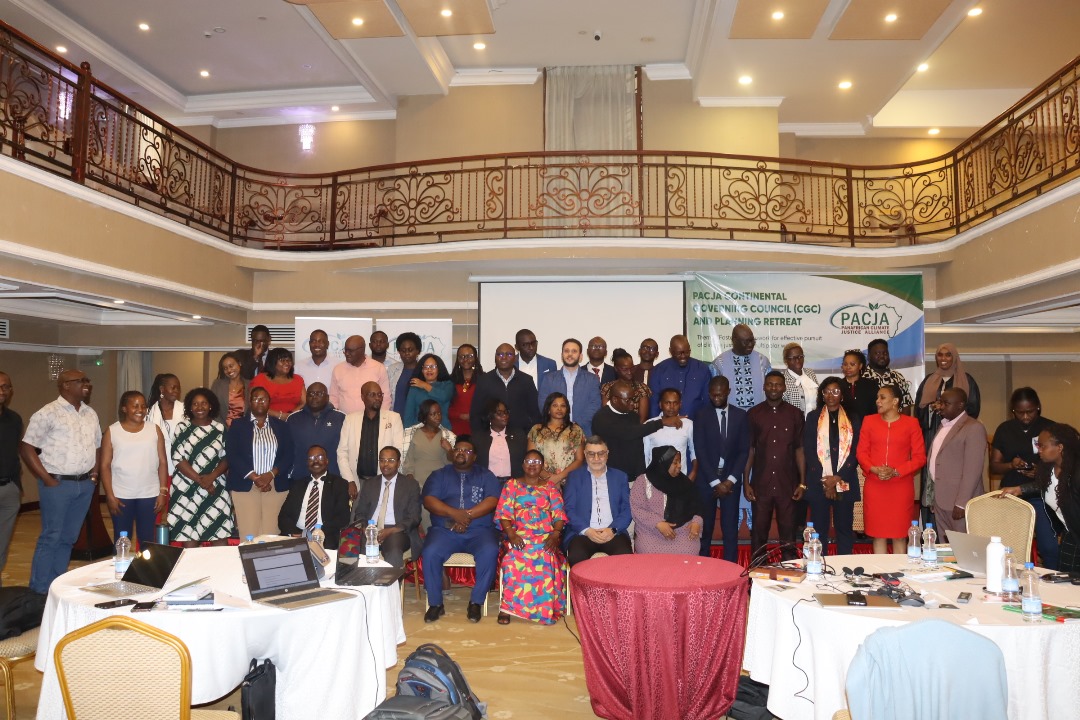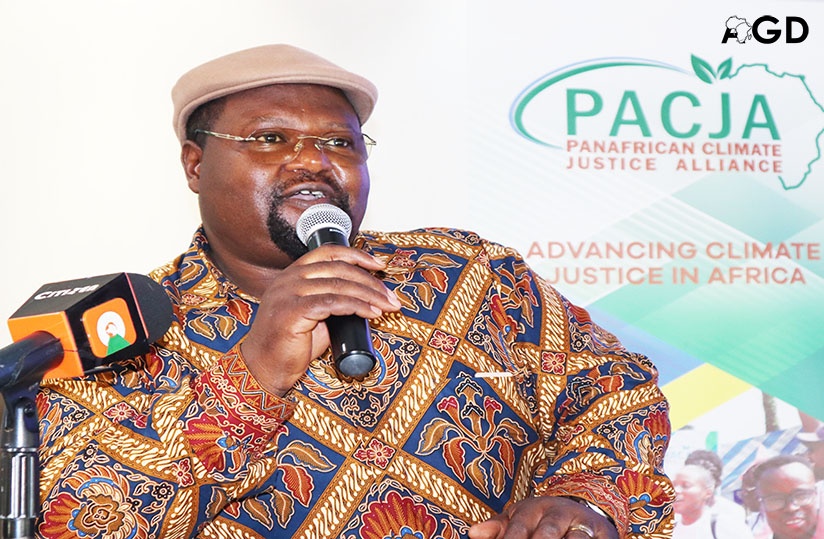Thriving Against the Odds of Climate Justice: Insights from Dr. Augustine Njamnshi
PACJA condemns US G20 Meeting Boycott in South Africa
February 11, 2025
PACJA Opens the Curtains for the Ambitious Third Generation of Its Strategic Plan
February 13, 2025The year 2008 marked a significant moment in Johannesburg, South Africa when the Pan African Climate Justice Alliance (PACJA) emerged as the largest and most dynamic civil society platform focused on climate change and sustainable development. What began with just a few members has grown to over 2,000 members across 54 countries, a milestone achieved through strong commitment and determination.
PACJA’s journey has been characterized by strategic engagement and careful planning. As the organization embarks on the third generation of its strategic plan, based on the Strategic Framework 2021-2030, we spoke with Dr. Augustine Njamnshi, the co-founder and chair of the Political and Technical Affairs Committee. He shared his insights on the organization’s journey and its accomplishments in the climate justice arena.
Can you tell us about the journey in the space of Climate Change?
First, the Pan African Climate Justice Alliance was created as an African civil society movement to demystify the concept of climate change and climate discourse in general. Before the creation of five jobs, Africa, especially civil society, was lagging in terms of effectively participating in or having a seat at the table on climate change matters.
One climate change was treated as a purely scientific and environmental issue. So, it meant that many academics, scientists, and policymakers were engaging with climate change at a very high level forgetting the fact that the people on the ground who are the hardest truth by the conscious impacts of climate change are never having a seat at the table. Secondly, these very people are those who should indeed be in the driving seat for the solutions to climate change.
Our objective was therefore to make sure that we have an African perspective. It was also meant to unify the African voice because at the time Africans were speaking at the international level with diverse positions depending on the country or the region where they came from. We saw that it was important for Africa to speak in one voice.
You spoke about the 1st PACJA strategy you referred to as PACJA 1.0. which led to 2.0 coming to an end, what was the strategy trying to address?
The strategy was to unify to have a common position which we did from 2008 up to 2021. With the coming into place of the Paris Agreement, it was important to move the way to move a step further from the campaign for climate justice to the implementation of the Paris Agreement. Implementation of the Paris Agreement might work on the ground.
We had to move PACJA from the sub-regional level or continental level and international levels to the ground to the movement where it belongs. 2.0 was therefore based on the fact that implementation of the Paris Agreement will not be effective whether the effective proactive and timely participation of the masses. That’s why Power of Doctor went to the grassroots.
That was the onset of PACJA 2.0; what was the specific focus of that?
Since 2021 we’ve been focusing on building the strength and capacity of our national platforms to be part of the climate discussion and activities at the national level.
That is patriarchy all along with is one thing building a movement and it’s another thing sustaining it. We’ve had some ups and downs and we don’t regret it. We capitalize on those strengths that we’ve noticed at the national level and then for the witnesses, we’re trying to work on those and let this remain at Africa’s movement.
Now what would the 3.0 strategy look like?
This strategy makes it hard to push our agenda, our original agenda of making sure that is effective participation of the masses in climate decision-making is sustainable. 3.0 is being adopted in a period wherein a context where the right wind movement is the fast-gaining grounds. There’s an increase in climate deniers.
There is a possibility and that is even already happening where the gains that we’ve made over the million will be reversed. Especially with someone sitting in Washington as the head of the most powerful nation on earth, which is in the United States that thinks that the whole climate change thing is a scam. We cannot stay once folded.
3.0 is to reinforce the capacity of this movement that is already on the grounds to make sure that we continue to push our agenda with climate change and have the resources that are needed on the ground to fight the impacts of climate change.
This of course we have to do in a context where we need other movements Global south is even in North that has to fight not just climate change, but also fight the right wording movement that is denying the fact that climate change is already.

